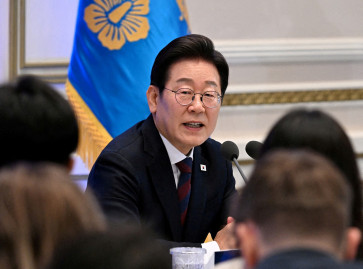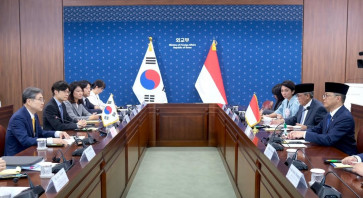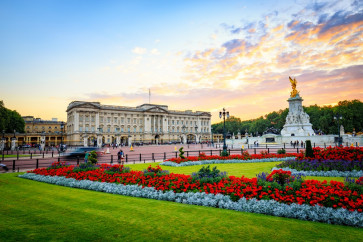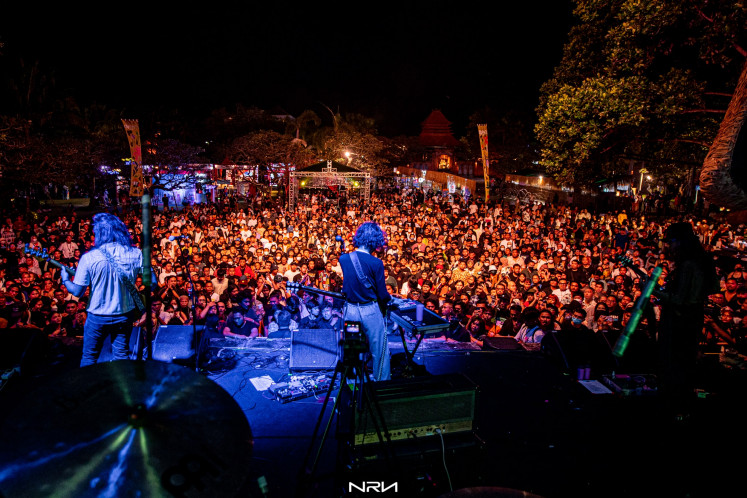Popular Reads
Top Results
Can't find what you're looking for?
View all search resultsPopular Reads
Top Results
Can't find what you're looking for?
View all search resultsDiscourse: Strengthening women’s role in peace in a religious society
Rula Ghani (AFP)Afghanistan has recently been closely engaging with Indonesia to share the latter’s experiences in peace building, building on diversity and pluralism in the world’s largest Muslim-majority country
Change text size
Gift Premium Articles
to Anyone
Rula Ghani (AFP)
Afghanistan has recently been closely engaging with Indonesia to share the latter’s experiences in peace building, building on diversity and pluralism in the world’s largest Muslim-majority country. The Jakarta Post’s Tama Salim spoke with Afghanistan’s First Lady, Rula Ghani, also known as Bibi Gul, on the role of women in advocating for peace. Here are excerpts of the interview.
Question: In your advocacy of women in peace, you talk a lot about strengthening the role of women in the family. How does this affect peace in society?
Answer: If I talk about the family, it’s because I’m convinced that the family is the main element in a society. Family has the role of a support group. When you go to the West, they keep telling you that you need to keep your own network of support; in case something goes wrong [...] you have people who help you. In our traditional societies, we have our support network within the extended family, so this is why the family is a very important element we need to attend to.
This is also why I’m saying the woman has to find her place within the family and become an active member of the family, not just a quiet person sitting on the side.
When you think about it, women are very important to a family because they have daily functions of taking care of the family, whether they are in charge of the cooking, the laundry, the cleaning or education of the children etc.
Unfortunately, because economists don’t put a value on that work when they calculate the GDP of a country, people think their work amounts to nothing. And that’s not true. So we need to start appreciating the role of women in the family.
Once the women’s role is reinforced, then they can voice their concerns, and usually women act instinctively as peacemakers [...] If two brothers were fighting each other, the women would come and calm them down and say, “This is your brother, why don’t you talk it through?” It is very instinctive, and I think women have a role in calming a situation that can turn into much larger conflicts.
Do we need women as religious leaders?
Of course we do. We always need women in all spheres of activities, because women and men have slightly different approaches to life — it’s totally normal and they complement each other. This is why families are composed of women and men; they don’t each live in a bubble. You don’t have women on one side and the men on the other. So, women should be taking part at all levels of society.
Indonesia recently had its first ever gathering of female Muslim clerics, in which they promoted gender equality based on the Quran. How do you think these women should exercise their role, especially since Indonesia has the largest Muslim population in the world?
I think the holy Quran speaks for itself. So, for these women to point out to all the passages in the Quran — where indeed man and woman are treated equally — is already an indication that men and women are equal. I don’t think they are being feminists; they are being true to the religion.
There have been women scholars from the time of the Prophet [Muhammad], and actually, they are pointing out something that is true and in the Quran. This is where we come to the translations; sometimes translations don’t necessarily emphasize this aspect, and I think the role of the female scholars or ulema is very important to bring truth to what the Holy Quran says. But they don’t need to interpret, they just need to say this is what we find in the Quran.
If you can convey a message for the men to take away, so that peace and equality may prevail in this world, what would it be?
What is extremely important for everybody to understand is that men and women complete each other, so you can’t have a matriarchy or a patriarchy. It is really very important that we accept that.
When you have two hands, why would you just want to work with one hand and tie the other behind your back? You want to work with both hands, because then you can work better, you’re stronger, you’re more capable of doing things, and you are both working for the future of your children and your society — and you achieve success much more easily.










